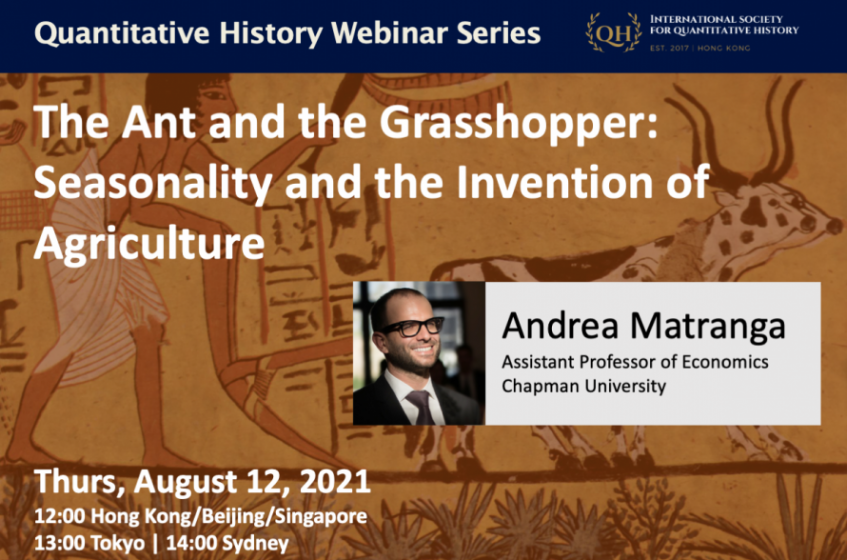
The Ant and the Grasshopper: Seasonality and the Invention of Agriculture
The Ant and the Grasshopper: Seasonality and the Invention of Agriculture
During the Neolithic Revolution, seven populations independently invented agriculture. Andrea Matranga of Chapman University argues that this innovation was a response to a large increase in climatic seasonality. In the most affected regions, hunter-gatherers abandoned their traditional nomadism in order to store food and smooth their consumption. Their new sedentary lifestyle greatly simplified the invention and adoption of agriculture. In this Quantitative History Webinar, Andrea Matranga will present a model that captures the key incentives for adopting agriculture, and explain how the resulting predictions are tested against a global panel dataset of climate conditions and Neolithic adoption dates. Andrea Matranga finds that invention and adoption were both systematically more likely in places with higher seasonality. The findings of his paper imply that seasonality patterns 10,000 years ago were amongst the major determinants of the order in which different regions received agriculture, which in turn had a decisive influence on the rise of civilizations and subsequent human history.
Live on Zoom on August 12
12:00 Hong Kong/Beijing/Singapore
13:00 Tokyo | 14:00 Sydney
Previous Day 21:00 Los Angeles
Calculate your local time
The Quantitative History Webinar Series, convened by Professor Zhiwu Chen and Dr. Chicheng Ma of The University of Hong Kong (HKU), aims to provide researchers, teachers and students with an online intellectual platform to keep up to date with the latest research in the field, promoting the dissemination of research findings and interdisciplinary use of quantitative methods in historical research. The Series is co-organized by the International Society for Quantitative History, HKU Business School, and the Asia Global Institute (AGI).
Conveners:
Professor Zhiwu Chen
Dr. Chicheng Ma










